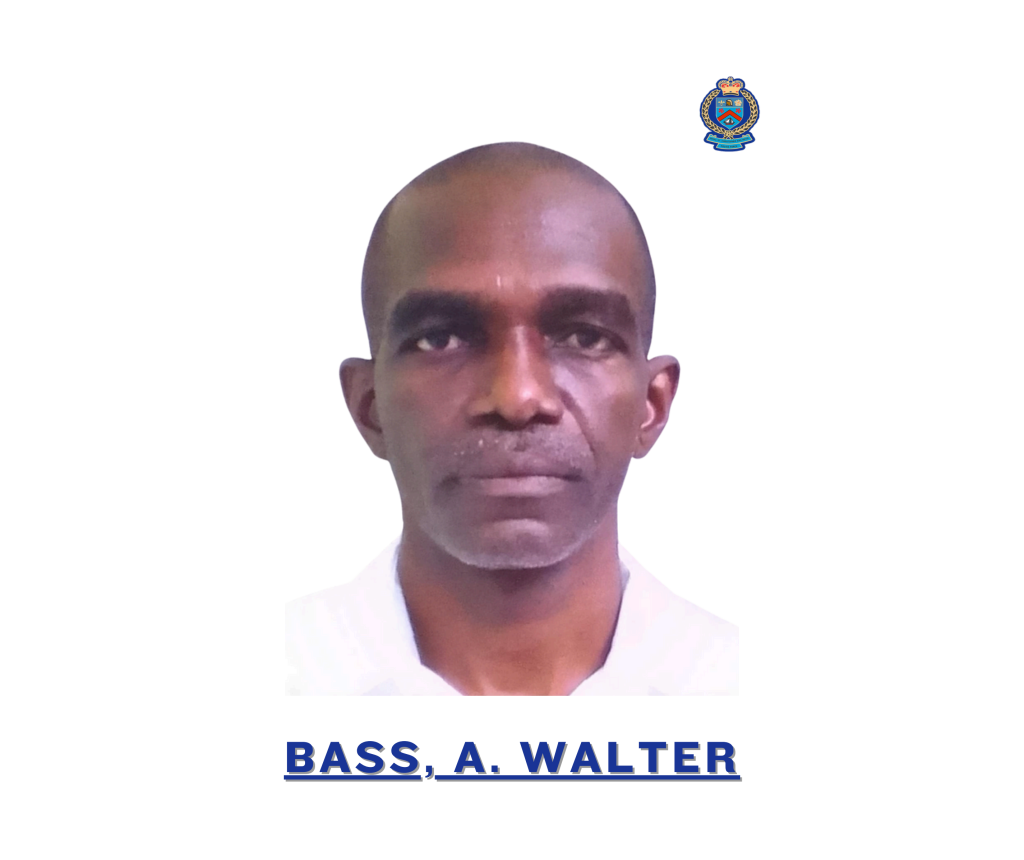Walter Bass Receives Sentence for Indecent Assault
On December 20, 2024, the Royal St. Christopher and Nevis Police Force announced the sentencing of Walter Bass, a resident of Gillard’s Meadows in St. Peters, St. Kitts. Bass was found guilty of indecent assault, an offense committed on May 25, 2019, and received an eighteen-month prison sentence at His Majesty’s Prison. The presiding judge, His Lordship Justice Iain Morley, KC, delivered the sentence on December 17, 2024, at the High Court in Basseterre, the capital city of St. Kitts. This case underscores the commitment of the judicial system in St. Kitts and Nevis to address crimes of a sexual nature and uphold the safety and well-being of its citizens. The details of the case itself were not released to the public, respecting the privacy of the victim and adhering to legal protocols.
The sentencing of Walter Bass includes a provision for early release, contingent upon his demonstration of good behaviour while incarcerated. He will be eligible for this early release after completing one-third of his eighteen-month sentence, which equates to six months. This incentive encourages rehabilitation and compliance with prison regulations, offering a path towards reintegration into society. Furthermore, the time Bass spent in remand prior to his sentencing will be deducted from his overall prison term. This practice acknowledges the period of confinement already served while awaiting trial, ensuring that the total time incarcerated aligns with the principles of fair sentencing.
Indecent assault is a serious offense that violates an individual’s bodily autonomy and can have profound psychological impacts on the victim. It involves unwelcome sexual touching without consent, ranging from inappropriate touching over clothing to more invasive acts. The legal definition and severity of the penalties associated with indecent assault vary across jurisdictions, but its fundamental nature as a transgression against personal dignity remains consistent. In St. Kitts and Nevis, the sentencing of Walter Bass reflects the legal framework designed to protect individuals from such violations and to hold perpetrators accountable for their actions.
The judicial process in this case involved the presentation of evidence and arguments by the prosecution, representing the Crown, and the defense counsel representing Walter Bass. The judge considered the presented facts, applied the relevant legal principles, and arrived at the eighteen-month sentence. The details of the trial, including the nature of the indecent assault, the evidence presented, and the specific arguments made by the prosecution and defense, were not made public. The focus of the public announcement was the outcome of the legal process – the sentencing of Walter Bass – and the conditions associated with his incarceration and potential early release.
The implications of this case extend beyond the individual involved. It reinforces the importance of reporting incidents of indecent assault and other forms of sexual violence, reassuring victims that the judicial system is prepared to investigate and prosecute such crimes. By publicizing the sentencing of Walter Bass, the authorities in St. Kitts and Nevis aim to deter potential offenders and to promote a culture of respect and safety within the community. The case also highlights the ongoing need for education and awareness surrounding issues of consent, bodily autonomy, and the legal ramifications of sexual misconduct.
The public announcement of Walter Bass’s sentencing serves as a reminder of the legal consequences of indecent assault and the commitment of the justice system in St. Kitts and Nevis to protecting its citizens. While the specifics of the case remain confidential, the announcement underscored the importance of upholding the law and holding offenders accountable for their actions. The provision for early release contingent on good behavior offers a path towards rehabilitation and reintegration into society, while the consideration of time served on remand demonstrates a commitment to fair sentencing practices. The case also emphasizes the broader societal need for continued dialogue and education on issues of consent, sexual assault, and the support services available to victims.
Share this content:












Post Comment